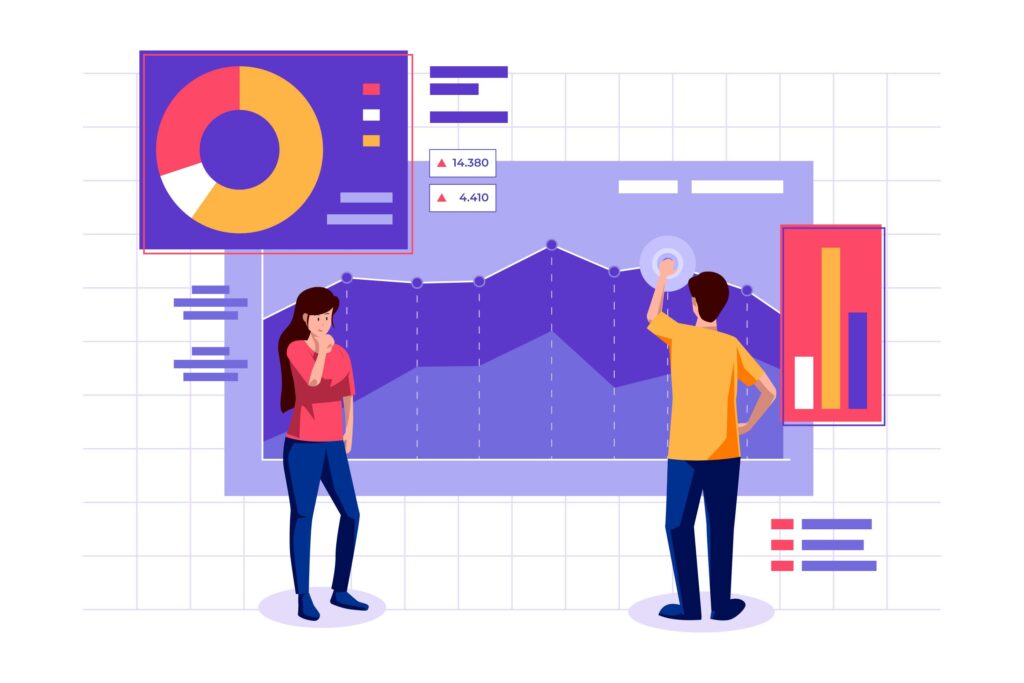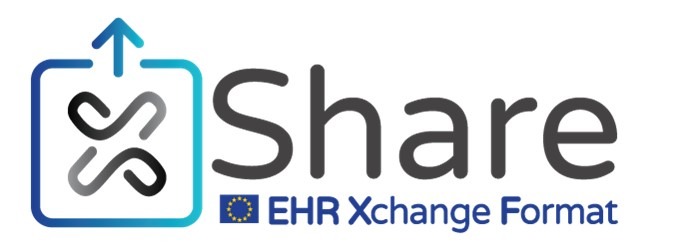EU member states are developing national Digital Health policies and strategies to implement national roadmaps, following on from the European Commission’s 2004 Communication on “eHealth – making healthcare better for European citizens: An action plan for a European Digital Health Area”. Countries across Europe have adopted strategies reflecting the European Digital Health Action Plan, and globally most WHO Member States have by now drafted similar strategies and are creating infrastructures in support of Digital Health applications. Through numerous studies and projects, empirica has supported these efforts, at regional, national or the European Union level. We have also carried out studies commissioned by WHO, the Commonwealth Office, and the European Space Agency, or concerned with sub-Sahara Africa. Our emphasis is not so much on the technology as on barriers and enablers beyond technology. The focus is on integrating the views and expectations of stakeholder groups directly involved or impacted, and the benefits and costs to them, as well as on infrastructure elements and generic solutions in support of health policy priorities and interoperability requirements for patient data exchange, public health priorities, and clinical research. At the governance level, we have analysed administrative responsibility and competence centers, stakeholder engagement, legal and regulatory facilitators, financing and reimbursement, and evaluation activities. Cross-country challenges include patient summaries and electronic health records, ePrescription, telehealth, electronic identifiers, and eCards, as well standardisation. We identified seven key success factors: health policy vision and leadership, focus on health professional and stakeholder engagement and needs, establishment of strong trust by all actors, regional rather than national focus, reliable infrastructure components, training, and guidance and control through impact assessment and evaluation.
Digital Health
Demographic change, chronic diseases and personalised care demand new approaches to health and social care delivery. The safety, sustainability, and cost-efficiency of our care systems need to be improved. The application of advanced ICT and medico-technical innovations can make a major contribution towards achieving these goals.
Digital Health Policies & Strategies
IT for Cross-Border Healthcare
The landmark 2011 “Directive on patients’ rights in cross-border healthcare” not only marked a new phase in European Union engagement in health policy, boosted by European Court of Justice rulings about basic freedoms in a single market, including freedom of movement. It also provided the first legal base for eHealth. As a result, obligations, opportunities and incentives have been created for ICT applications – to improve patient-data access and exchange across borders, for patients both in emergency situations and when seeking planned healthcare from a specialist in another member state. Through numerous studies and projects, empirica has been pivotal in supporting the provision of cross-border healthcare facilitated by ICT. The involvement has included the 25-country epSOS pilot, developing Smart Open Services (for patient data summaries and electronic prescriptions) for European Patients; the openMedicine project Meeting the challenge of open access to medicinal products across the Union; participation in the Evaluative Study on the Cross-border Healthcare Directive; and the study supporting The set-up of guidelines in support of European ePrescription interoperability. In addition, we have been involved in the Digital Health Strategies project to monitor the development and implementation of eHealth Strategies of all EU Member States, the ASSIST study on the development of an AsseSSment and evaluatIon toolS for Telemedicine to assist the European Space Agency ( ESA) and its industry partners to better focus R&D and business development on initiatives that have clear and objective added value as well as the ARGOS eHealth EU-USA project on a Transatlantic Observatory for Meeting Global Health Policy Challenges through ICT-Enabled Solutions should be mentioned.
Digital Health Interoperability
Modern health systems depend on interaction between many distinct but interacting providers, including general practitioners, specialists, hospitals, laboratories, and pharmacies. Information exchange among them is vital for quality, safe, and efficient service delivery, and interoperability among their ICT systems is necessary to support the collaboration.
empirica has been at the forefront of European Digital Health interoperability developments. To promote common European understanding and goal-oriented discussions, the European Commission sponsored an i2-Health study that defined an initial European Union eHealth Interoperability Framework, which has since gained international recognition. This was later expanded in the European Thematic Network “CALLIOPE” to cover the wider eHealth architectural domain. The semantic interoperability that linguistically disparate medical professionals, patients and others require for exchanging, understanding and acting on patient information and medical knowledge within and across health systems is a core aspect of empirica’s work. Medical records need to be technically interoperable, and also to be structured in line with agreed global standards. They should also be semantically coded so that, in many application contexts, they can fully support disease prevention, diagnostic and therapeutic interventions, acute healthcare provision, rehabilitation and long-term care, as well as public health services, in a European cross-border context.
In Silico Medicine
In silico medicine, the use of computer simulation in the diagnosis, treatment, or prevention of a disease, compliments in vivo and in vitro medicine. This synergy between medical informatics, biocomputational modelling, and bioinformatics and its potentially highly transformational impact on healthcare has been promoted by the European Commission since 2001. The European Virtual Physiological Human (VPH) Initiative has spawned collaborative projects across disciplines and with international partners in industry, academia, and healthcare. Decision support systems incorporating personalised and predictive models are developed in order to provide for health forecasting , safer medical operations, the development of personalised treatments, for improved prevention and prediction of disease development, as well as for safer clinical trials and drugs. Medical device testing is another promising application field.
empirica has supported researchers, developers and industry on both sides of the Atlantic through project development, RTD and health policy analysis, roadmapping towards the “Digital Patient”, socio-economic and clinical impact assessment, market exploration, exploitation scenarios and business case development, including identifying core value propositions for stakeholders involved. In silico medicine exhibits a great potential to help address today’s health system challenges through greatly impacting on how medicine is delivered, and gain technologically competitive advantages for Europe, for both its research community and industry.
Person-centred care
Person-centred care means re-designing healthcare services so that there is cooperation amongst all actors with a focus on the patient. It requires information to be integrated so that across the entire range of actors, support is efficiently and effectively provided to patients to enable them to play a bigger role in their own health and wellness. The principal target beneficiaries are members of the ageing population, for whom integrated care can help in chronic disease management, particularly by assisting compliance with treatment – often when patients are receiving multiple simultaneous therapies. Technical issues such as clinical data management and standardisation and re-use of information are improved, and organisational change permits new clinical routines. Full adjustment to patient-centred care also requires tackling issues arising from market fragmentation, reimbursement models that do not provide the right incentives, or obsolete requirements that preclude virtual consultation or remote monitoring.empirica has for many years shaped and supported the international discussion on the development of person-centred care. We work with healthcare providers in the practical implementation of integrated care systems. We evaluate the effectiveness of patient empowerment measures. We are at the heart of policy developments like the European Innovation Partnership on Active and Healthy Ageing. We develop business models for marketing personal health systems. We actively shape research by participating in Digital Health Innovation, an EU-funded Thematic Network. We facilitate standardisation and interoperability as a member of the Continua Health Alliance, and we are a founding member of the Institute of Excellence for Semantic Interoperability. We combine research excellence with practical application.
Business development
Information and communication technology applications and devices play an increasing role in providing better healthcare, particularly to chronically ill patients, and aid in the care for older people. Citizens are empowered to become co-producers of their health. Older, frail people can be supported in their activities of daily living. They stay independent and at home for longer. Today, a wide variety of telehealth, telemedicine and telecare systems, devices and applications have become available. Often, however, successful innovation and diffusion are impeded by lack of knowledge about the users – both citizens and professionals -, about integration into patient and social care workflows, and about the specificities of health and social care markets.
empirica helps clients to develop RTD and service concepts, and supports user-centred design and business modelling. We analyse implementation strategies and help to acquire funding for the early phases of product development. We mediate dialogue with potential users – patients, care professionals or providers – to improve usability and usefulness of the product, and we explore reimbursement options with political stakeholders and third-party payers.
We undertake market research, and investigate potential value chains and core value propositions for future clients. Our comprehensive SWOT analyses underpin the development of business cases and the drafting of exploitation and business plans. Analysis of a venture from the point of view of diverse stakeholders makes it possible to assess respective benefits and costs, and facilitates identifying stakeholders who may act as veto players and hinder change. We develop strategies to overcome resistance, assist in change management, and support re-engineering care processes.
Our extensive experience dates back to 1989. empirica initiated and fully implemented the first world-wide interactive broadband video telephony project based on cable TV. The service supported the care for special needs of frail 70-to-90-year-olds in Frankfurt/Main, Germany. In 2000 empirica was involved in another worldwide first, a long-term randomised controlled trial of a home telemonitoring system for heart failure patients, in 12 hospitals in three member states.
We support industries in the development and market validation phase of their products. Companies such as AGFA, Alere Inc., Cisco, Hewlett Packard, INTEL, Philips, and Tunstall, have been among our customers.
Digital Health service innovation
An innovation is an idea for a new or improved product/service, process, or system being realised for the first time within an organisation or marketed to external customers. Digital Health innovations usually involve the application of new ICT-based technology and applications as well as new or adapted healthcare service processes. Successfully implementing and diffusing these innovations requires specific expertise and experience. This is because the health market is different to other industrial or services markets, on prices (which are often set by external regulators), clients (free selection is usually not possible), referral relationships (building them may be illegal), and quality of services (better may mean fewer customers and less income).empirica boasts extensive experience in designing, planning, implementing and evaluating eHealth-supported service innovations in health and social care systems. Our concrete involvement and consultancy services cover competencies ranging from socio-economic impact and cost-benefit studies to case analyses of successful Digital Health implementations in diverse health system domains, and from clinical trials to assess new medical interventions supported by Digital Health applications to a wide spectrum of concrete pilot implementations in diverse regional and national health systems across Europe. We provide complex innovation management on new service design and delivery. We cover new approaches to providing improved and redesigned vertically integrated healthcare, and horizontal integration of health and social care services in which support for activities of daily living and ambient assistive living devices were merged with novel procedures to assure close monitoring and emergency support facilitated by telemonitoring applications. We also develop innovation management strategies for the technical results of European Digital Health research and innovation projects.




